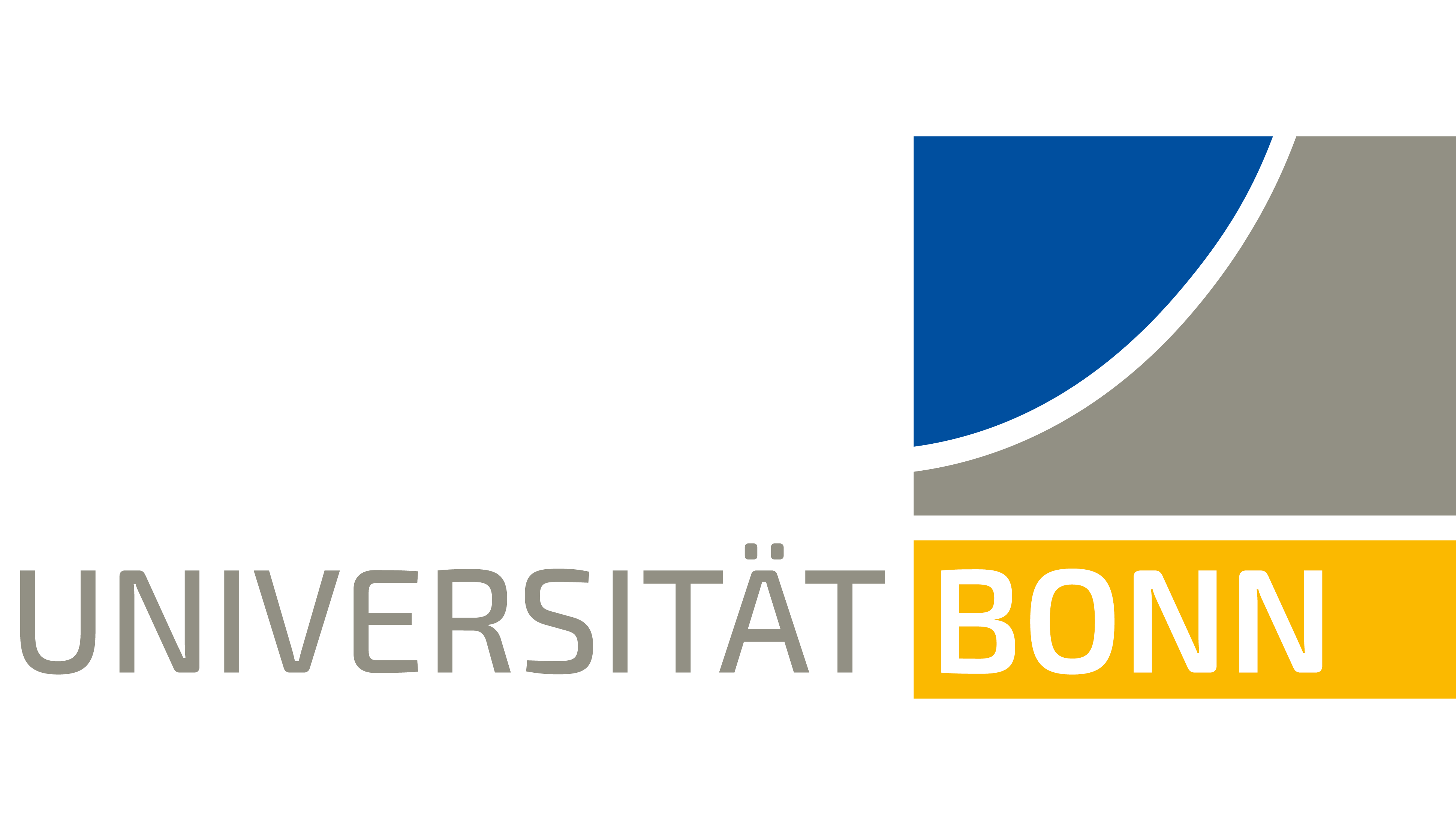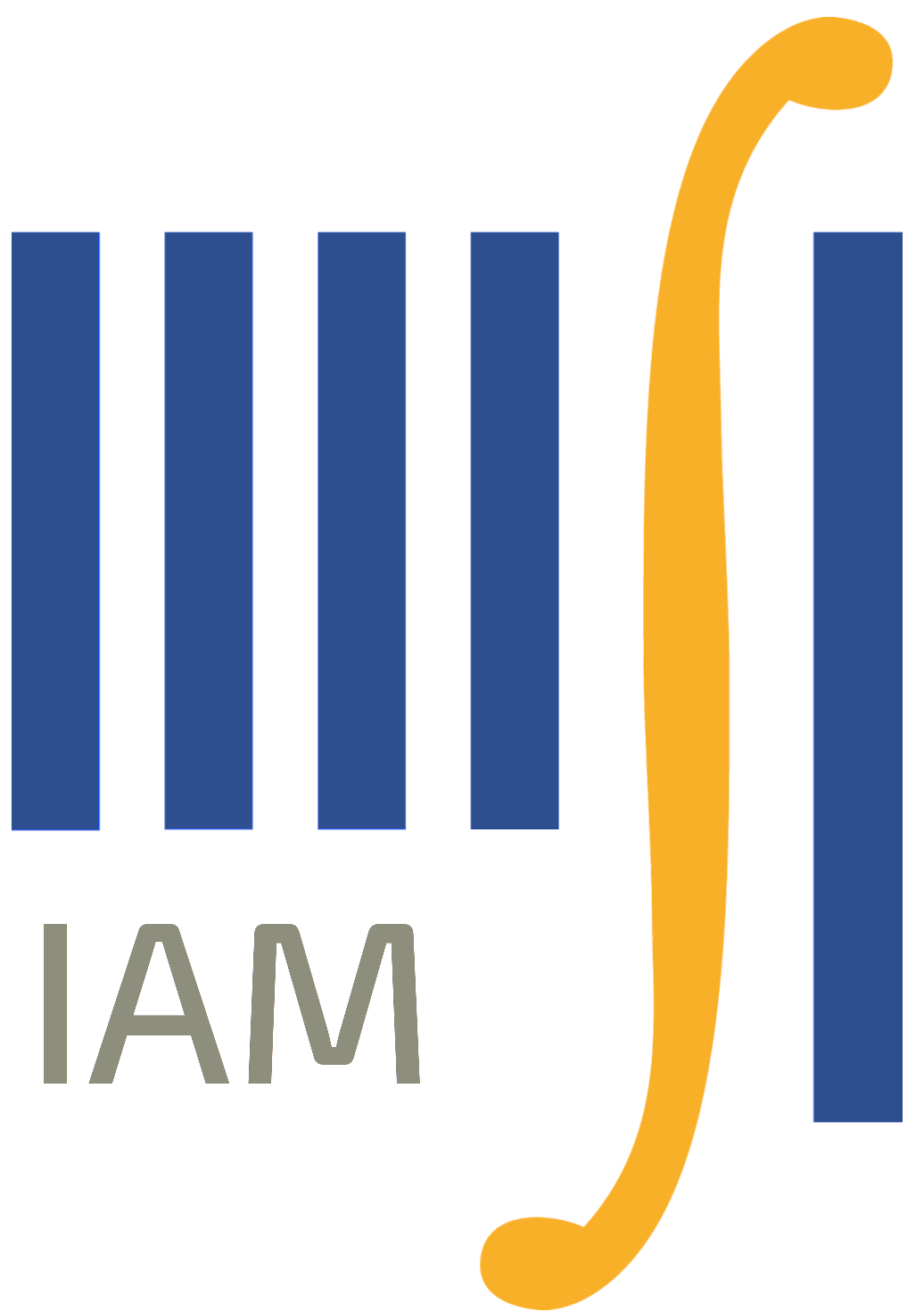V5F3 - Advanced Topics in Stochastic Analysis
Modelling Across Scales
SS 2022
Lectures: Wednesdays, 12.00-14.00 and Fridays, 10.00-12.00 (in person)
Location: Wegelerstr. 10, Zeichensaal
Some lectures will be replaced with sessions on Tuesdays (time to be confirmed together with participants) in Endenicher Allee 60 - SemR 0.007
First lectures:
- Tuesday, 05 April, 16.00-18.00 (Endenicher Allee 60 - SemR 0.007)
- Wednesday, 06 April, 12.00-14.00 (Wegelerstra. 10 - Zeichensaal)
Office Hours: Wednesdays, 14.00-15.00
Course Instructor: Prof. Dr. Franca Hoffmann
Course Description
This course gives an overview of different mathematical tools to analyze partial differential equations encountered across mathematics, biology, physics, engineering and social science. We will look at the properties of different classes of linear and nonlinear PDEs and the behavior of their solutions using tools from functional analysis and calculus of variations with an emphasis on applications.
We will focus on representative models from different areas which may include: the transport equation, the Fokker-Planck equation, the Boltzmann equation, the Fisher-KPP equation, Burger’s equation, swarming models, models for opinion dynamics, bio-mathematics models for cell movement and bacterial chemotaxis (Patlack-Keller-Segel model), SIR models from epidemiology, Lotka-Volterra equations, predator-prey systems, chemical reactions, enzymatic reactions.
The above list is flexible and depends on the audience. If you are interested in this course, feel free to contact me at franca.hoffmann@gmail.com with (types of) models you would like to study.
Content outline
We will study the theories involved in understanding the following key concepts:
- Connections between different scales: Micro-Meso-Macro
- Agent-based models, kinetic equations and corresponding macroscopic descriptions
- The aggregation equation and collective animal behavior
- Mean Field Limits and Hydrodynamic Scalings
- Optimal Transport and the Wasserstein Space
- Weak Derivatives and Theory of Distributions
- Transport Equations
Other core concepts may include:
- Gradient Flows and Entropy Methods
- Non-linear diffusion such as the porous medium equation
- Epidemiology Models
- Conservation Laws
- Instabilities and Pattern Formation
- Dimensional Scaling Analysis
- Self-Similar Scalings
- Introduction to Inverse Problems
References
For a preliminary list of references relevant to this class, see this PDF (may change).
Registration
Uni Bonn Students: you can self-register on eCampus starting March 17, 2022.
External Students: Please send an email to franca.hoffmann@gmail.com
Organization
The course material will be made available on eCampus (only accessible for Uni Bonn students) and sciebo (access will be given to all course participants). The lectures will be held in person.
Grading
This class will be assessed through oral examination at the end of the semester.
Personal Privacy and Intellectual Property
In an online learning environment, students must respect the privacy of their classmates and not share personal information about other students beyond the online classroom. Students must not share class recordings, transcripts, or links to lectures and discussion sessions with anyone who is not officially enrolled in the class, or teaching or supporting the class. While each student enrolled in a course should have access to all course materials and learning options, they should also remember they have an ethical responsibility to keep this information private.
S4B2 - Graduate Seminar
PDE - Analysis of Machine Learning Problems: From Theory to Practice
WS2021/22
Seminars: Tuesdays, 16.00-18.00h
Seminar Organizers:
- Leon Bungert
- Sergio Conti
- Alexander Effland
- Franca Hoffmann
- Martin Rumpf
Seminar Description
In the past decade, powerful new machine learning methodologies have been developed. The mathematical analysis of these tools is a major challenge, and there is currently still a large gap between theory and practice. In this seminar, selected machine learning methods will be presented and rigorously investigated. Topics are being suggested by a number of different research groups at Bonn. A lot of these approaches rely on tools from functional analysis, approximation theory, calculus of variations and the analysis of partial differential equations, ranging from the rigorous analysis of gradient descent methods and neural network architectures to applications for solving high-dimensional PDEs. In addition, we consider including some talks on the practical implementation of these techniques, and their performance for different applications.
Seminars will be presented starting Nov 2021.
Seminar Material: If you like to have access to the seminar material, you can contact me at franca.hoffmann@gmail.com
S4B1: Graduate Seminar - Mathematical Analysis of Machine Learning Methods
SoSe 2021
Instructors: Prof. Dr. Franca Hoffmann, Prof. Dr. Martin Rumpf
Seminars: online via zoom
Description: In the past decade powerful new machine learning methodologies have been developed. The mathematical analysis of these tools is a major challenge.
In this seminar selected machine learning methods will be presented and rigorously investigated. A lot of these approaches rely on tools from analysis and calculus of variations. A particular focus will be on graph methods, and on applications in geometry processing.
Preliminary Meeting: Thursday, 11 Feb 2021, 10:15
Zoom details are accessible on BASIS and eCampus.
Registration: If you are interested in participating in this seminar, please get in touch ahead of the preliminary meeting with Prof. Martin Rumpf (martin.rumpf@uni-bonn.de) or Prof. Franca Hoffmann (franca.hoffmann@hcm.uni-bonn.de) to signal your interest. We appreciate it if you share with us relevant classes you have taken, the topic of your master thesis (if applicable), or any particular interests related to the seminar topic.
We look forward to hearing from you.
V5F3 – Advanced Topics in Stochastic Analysis
Modelling Across Scales
WS 2020
Lectures: Mondays and Wednesdays, 12.00-14.00 (online via zoom)
Office Hourse: Mondays, 4pm (same zoom link as for lectures)
Course Instructor: Prof. Dr. Franca Hoffmann
Course Description
This course gives an overview of different mathematical tools to analyze partial differential equations encountered across mathematics, biology, physics, engineering and social science. We will look at the properties of different classes of linear and nonlinear PDEs and the behavior of their solutions using tools from functional analysis and calculus of variations with an emphasis on applications.
We will focus on representative models from different areas which may include: the Fokker-Planck equation, the Boltzmann equation, the Fisher-KPP equation, Burger’s equation, swarming models, models for opinion dynamics, bio-mathematics models for cell movement and bacterial chemotaxis (Patlack-Keller-Segel model), SIR models from epidemiology, Lotka-Volterra equations, predator-prey systems, chemical reactions, enzymatic reactions.
The above list is flexible and depends on the audience. If you are interested in this course, feel free to contact me at franca.hoffmann(at)hcm.uni-bonn.de with (types of) models you would like to study. I will aim to present the material at an introductory level to allow participation from diverse backgrounds.
Content outline
We will study the theories involved in understanding the following key concepts:
- Connections between different scales: Micro-Meso-Macro
- Agent-based models, kinetic equations and corresponding macroscopic descriptions
- Mean Field Limits and Hydrodynamic Scalings
- Weak Derivatives and Theory of Distributions
- Transport Equations
Other core concepts may include:
- Gradient Flows and Entropy Methods
- Epidemiology Models
- Conservation Laws
- Instabilities and Pattern Formation
- Dimensional Scaling Analysis
- Self-Similar Scalings
- Introduction to Numerical Methods for ODEs and PDEs
- Introduction to Inverse Problems
References
For a preliminary list of references relevant to this class, see this PDF (may change).
Registration
Uni Bonn Students: you can now self-register on eCampus https://ecampus.uni-bonn.de/goto_ecampus_crs_1901534.html
External Students: Please send an email to franca.hoffmann(at)hcm.uni-bonn.de
Organization
The course material will be made available on eCampus (only accessible for Uni Bonn students) and sciebo (access will be given to all course participants). The lectures will be held on zoom (see zoom link on eCampus) and recordings + lecture notes will be made available on sciebo.
Grading
This class will be assessed through oral examination at the end of the semester. Oral exams are planned for the weeks 15-19 February 2021 (first round), and 22-26 March 2021 (second round) [provisionary dates].
Personal Privacy and Intellectual Property
In an online learning environment, students must respect the privacy of their classmates and not share personal information about other students beyond the online classroom. Students must not share class recordings, transcripts, or links to lectures and discussion sessions with anyone who is not officially enrolled in the class, or teaching or supporting the class. While each student enrolled in a course should have access to all course materials and learning options, they should also remember they have an ethical responsibility to keep this information private.


